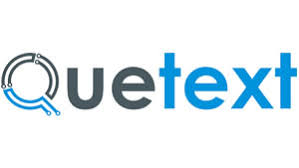Lingbe as Media against Speaking Anxiety for German Language Learners
Abstract
Speaking is an important skill in german language. Yet, speaking anxiety is a continuous topic in foreign language learning. Media learning has inovated futher to address the issue of language learning especially speaking. One of the innovated media learning platform is an app called Lingbe. Lingbe is a language exchange application by which language learners can have a call with natives. The purposes of this research were to describe the students’ activities using Lingbe on students of German Department in State University of Malang towards their language speaking anxiety and to describe the students’ responses about the implementation of the app. This research used qualitative approach with descriptive research type. The data were collected using observation, questionnaire, and interview technique. The result shows that the implementation of Lingbe run well after going through three meetings as planned. Students reveal that they are interested to use it periodically to help them by practicing their speaking skill and to lessen their anxiety of speaking German. Furthermore, students feel comfortable to have conversations with natives by using this apps.
Keywords
Full Text:
PDFReferences
Arifin, R. U., Latifa, A., & Ammade, S. (2021). Lingbe as interest driven in breinstorming speaking class. EXPOSURE : JURNAL PENDIDIKAN BAHASA INGGRIS, 10(1), 134–140. https://doi.org/10.26618/exposure.v10i1.5172
Armășel, G. (n.d.). Sprechangst im fremdsprachenunterricht – etwas dagegen? Retrieved April 21, 2022, from @goetheinstitut website: https://www.goethe.de/prj/fok/de/akt/21750711.html
Asramadhani, A., & Murni, S. M. (2013). Improving students’ speaking skill In expressing offering by using role play technique. Transform Journal of English Language Teaching and Learning, 2(2), 221780.
Bashori, M., Hout, R., Strik, H., & Cucchiarini, C. (2020). Web-based language learning and speaking anxiety. Computer Assisted Language Learning, 1–32. https://doi.org/10.1080/09588221.2020.1770293
Batubara, H. H. (2020). Media pembelajaran efektif. 266.
Bhatti, A., SHAMSUDIN, DR. S., & Mat Said, S. (2018). Code-Switching: A useful foreign language teaching tool in EFL classrooms. English Language Teaching, 11, 93–101. https://doi.org/10.5539/elt.v11n6p93
Bozavli, E., & Gulmez, R. (2012). Turkish students’ perspectives on speaking anxiety in native and non-native english speaker classes. 10.
Djafri, F., & Wimbarti, S. (2018). Measuring foreign language anxiety among learners of different foreign languages: In relation to motivation and perception of teacher’s behaviors. Asian-Pacific Journal of Second and Foreign Language Education, 3(1), 17. https://doi.org/10.1186/s40862-018-0058-y
Ekmekçi, E. (2018). Exploring turkish EFL students’ writing anxiety. 18.
Eskişehir, M. E. (2017). Angstgefühle von DaF-lernenden in Gesprächssituationen im Unterricht – eine kontrastive Analyse im internationalen Kontext12. 16.
Fatimah, S. (2017). The employment of a language exchange website for tandem language learning: efl learners' viewpoints. Journal of Language and Literature, 3(2). Retrieved from https://ejournal.gunadarma.ac.id/index.php/sastra/article/view/1700
Fitriah, & Muna, H. (2019). Foreign language speaking anxiety: A case study at english department students of IAIN lhokseumawe and al muslim university. 19(2), 19.
Hadisaputra, P. (2021). Penelitian kualitatif.
Hertanto, E. (2017). Perbedaan skala likert lima skala dengan modifikasi skala likert empat skala. Retrieved from https://www.academia.edu/34548201/PERBEDAAN_SKALA_LIKERT_LIMA_SKALA_DENGAN_MODIFIKASI_SKALA_LIKERT_EMPAT_SKALA
Hidayati, I. A., & Taufik. (2014). Hubungan antara konsep diri dengan kecemasan berbahasa asing pada mahasantri pesma k.h mas mansyur universitas muhammadiyah surakarta. 20.
Kétyi, A. (2013). Using Smart Phones in Language Learning – A Pilot Study to Turn CALL into MALL. 20 Years of EUROCALL: Learning from the Past, Looking to the Future, 129–134. Research-publishing.net. https://doi.org/10.14705/rpnet.2013.000150
Kurniati, A. K., Eliwarti, E., & Novitri, N. (2015). A study on the speaking ability of the second year students of SMK Telkom Pekanbaru (PhD Thesis). Citeseer.
Lindawati, N., & Sengkey, F. (2017). Peningkatan Keterampilan Berbicara Bahasa Inggris dengan Teknik Role Play pada Siswa Kelas X SMA Dwijendra Denpasar. Jurnal Manajemen Pelayanan Hotel, 3(1), 1–8. https://doi.org/10.37484/manajemen_pelayanan_hotel.v1i1.26
Makodamayanti, S., Nirmala, D., & Kepirianto, C. (2020). The Use of Digital Media as a Strategy for Lowering Anxiety in Learning English as a Foreign Language. Culturalistics: Journal of Cultural, Literary, and Linguistic Studies, 4(1), 22–26.
Maylan, K., Zurnelly, N., & Fitria, W. (2019). The correlation among students’ motivation and self esteem on students’ speaking performance (Skripsi, UIN Sulthan Thaha Saifuddin Jambi). UIN Sulthan Thaha Saifuddin Jambi. Retrieved from http://repository.uinjambi.ac.id/2052/
Mel, M., & Rini, J. E. (2016). Communication Strategies of High and Low Achievers: A Case Study. K@ta, 4(1), 7–12.
Ningsih, E. W. (2017). Kemasan dalam berbicara bahasa inggris mahasiswa semester keempat akademi bahasa asing balikpapan. PROSIDING SNITT POLTEKBA, 2(1), 277–287.
Nodoushan, M. A. S. (2015). Anxiety as it pertains to EFL writing
ability and performance. 9(1), 12.
Nugrahani, F. (2014). Metode penelitian kualitatif. Solo: Cakra Books, 1(1).
Nurhidayah. (2019). A study on student’s strategies in overcoming speaking problem in conversation (Skripsi, Universitas Muhammadiyah Makassar). Universitas Muhammadiyah Makassar, Makassar. Retrieved from https://digilibadmin.unismuh.ac.id/upload/6320-Full_Text.pdf
Nurseto, T. (2012). Membuat media pembelajaran yang menarik. Jurnal Ekonomi dan Pendidikan, 8(1). https://doi.org/10.21831/jep.v8i1.706
Otair, I., & Abd Aziz, N. H. (2017). Exploring the causes of listening comprehension anxiety from EFL saudi learners’ perspectives: A pilot study. Advances in Language and Literary Studies, 8(4), 79. https://doi.org/10.7575/aiac.alls.v.8n.4p.79
Oteir, I. N., & Al-Otaibi, A. N. (2019). Foreign Language Anxiety: A Systematic Review. Arab World English Journal, 10, 9.
Rao, P. (2019). The importance of speaking skills in english classrooms. 2, 6–18.
Saud, S., & Asri, W. K. (2017). Students’ perceptions on DeFleur communication model in sprechfertigkeit teaching for high school students. Proceedings of the Ninth International Conference on Applied Linguistics (CONAPLIN 9). Presented at the Ninth International Conference on Applied Linguistics (CONAPLIN 9), Bandung, Indonesia. https://doi.org/10.2991/conaplin-16.2017.31
Shamsi, A. F., Altaha, S., & Gilanlioglu, D. I. (2019). The Role of m-learning in decreasing speaking anxiety for EFL learners. 7.
Sugiyono. (2013). Metode penelitian pendidikan, (pendekatan
kuantitatif, kualitatif dan R&D). Bandung, Indonesia: Alfabet.
Tulgar, A. T. (2018). Speaking anxiety of foreign learners of turkish in target context. 21.
Wijayati, P. H., Rofi’ah, R., & Ayub, A. F. M. (2018). “My lecturer’s expressionless face kills me!” An evaluation of learning process of German language class in Indonesia. Research and Evaluation in Education, 4(2), 94–104. https://doi.org/10.21831/reid.v4i2.22466
Yang, Z. (2020). A study on self-efficacy and its role in mobile-assisted language learning. Theory and Practice in Language Studies, 10(4), 439. https://doi.org/10.17507/tpls.1004.13
Yonan, Y. (2021). Optialisasi penggunaan media video call ome tv sebagai solusi dalam melatih keterampilan berbicara bahasa arab. Semnasbama, 5(0), 389–398.
Zakariah, M. A., Afriani, V., & Zakariah, K. M. (2020). Metodologi penelitian kualitatif, kuantitatif, action research, research and development (r n d). Yayasan Pondok Pesantren Al Mawaddah Warrahmah Kolaka.
DOI: http://dx.doi.org/10.17977/um079v6i22022p37-51
Refbacks
- There are currently no refbacks.

This work is licensed under a Creative Commons Attribution-NonCommercial 4.0 International License
11.png) | 11.png) | 42.png) | 1.png) |
eISSN 2548-1681




